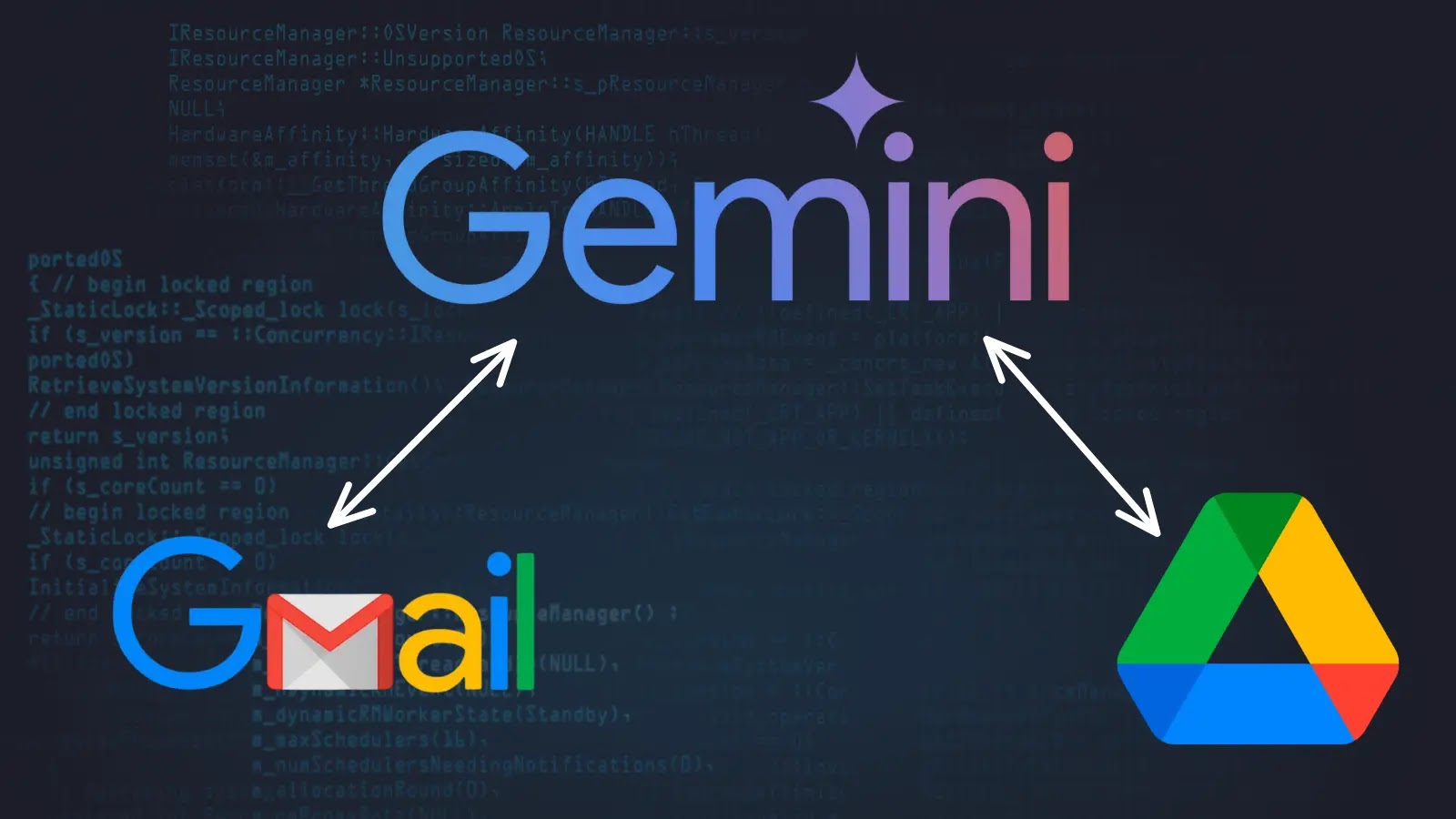Google’s Gemini AI Now Integrates with Gmail, Drive, and Chat: A Productivity Boost or Security Concern?
Google has recently enhanced its Gemini AI model by introducing the Deep Research feature, which now integrates directly with users’ Gmail, Google Drive, and Google Chat accounts. This advancement enables Gemini to access personal emails, documents, spreadsheets, slides, PDFs, and chat threads, combining them with web-sourced information to generate comprehensive research reports.
Enhancing Collaboration and Productivity
This integration is designed to streamline workflows for professionals and teams. For instance, users can initiate a market analysis by sharing brainstorming documents from Drive, relevant email threads, and project chat discussions with Gemini. The AI then synthesizes this internal data with external web information to produce a detailed report that aligns internal strategies with external insights.
Similarly, when conducting competitor analyses, users can upload comparison spreadsheets while Gemini retrieves public web data on rival products, offering a holistic view of the competitive landscape. Google has identified this feature as a most-requested enhancement, now available to all Gemini users on desktop via the Tools menu, with a mobile rollout forthcoming.
Security Implications and Concerns
While the integration offers significant productivity benefits, it also raises substantial cybersecurity concerns. Granting AI access to sensitive repositories like Gmail and Drive exposes vast amounts of confidential data—including proprietary strategies, client communications, and intellectual property—to Google’s processing ecosystem.
Although Google emphasizes user controls, such as selecting specific sources before initiating research, the default ease of access could lead to unintended data exposure. Cybersecurity experts warn of potential risks like prompt injection attacks, where malicious inputs might trick the AI into mishandling or exfiltrating private information.
In an era of escalating data breaches, such as the 2023 MOVEit supply chain attack affecting millions, this feature amplifies the attack surface. Organizations must now rigorously audit AI permissions and implement zero-trust principles to limit data exposure. Google’s history, including past Gmail scanning controversies, underscores the need for transparent data handling policies.
Recommendations for Users
To mitigate potential risks, users are advised to:
– Enable Multi-Factor Authentication (MFA): Adding an extra layer of security to accounts.
– Review Access Logs: Regularly monitor who has access to sensitive data.
– Implement Enterprise-Grade Controls: Utilize Google Workspace’s advanced protections to safeguard information.
As AI tools like Gemini evolve, balancing enhanced productivity with robust security measures is crucial. This update serves as a reminder that convenience should not come at the expense of data control. For security-conscious users, thorough evaluation of AI integrations is essential.



